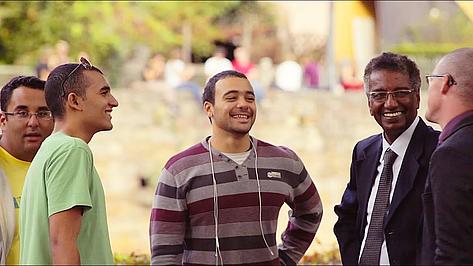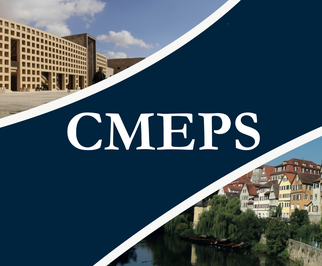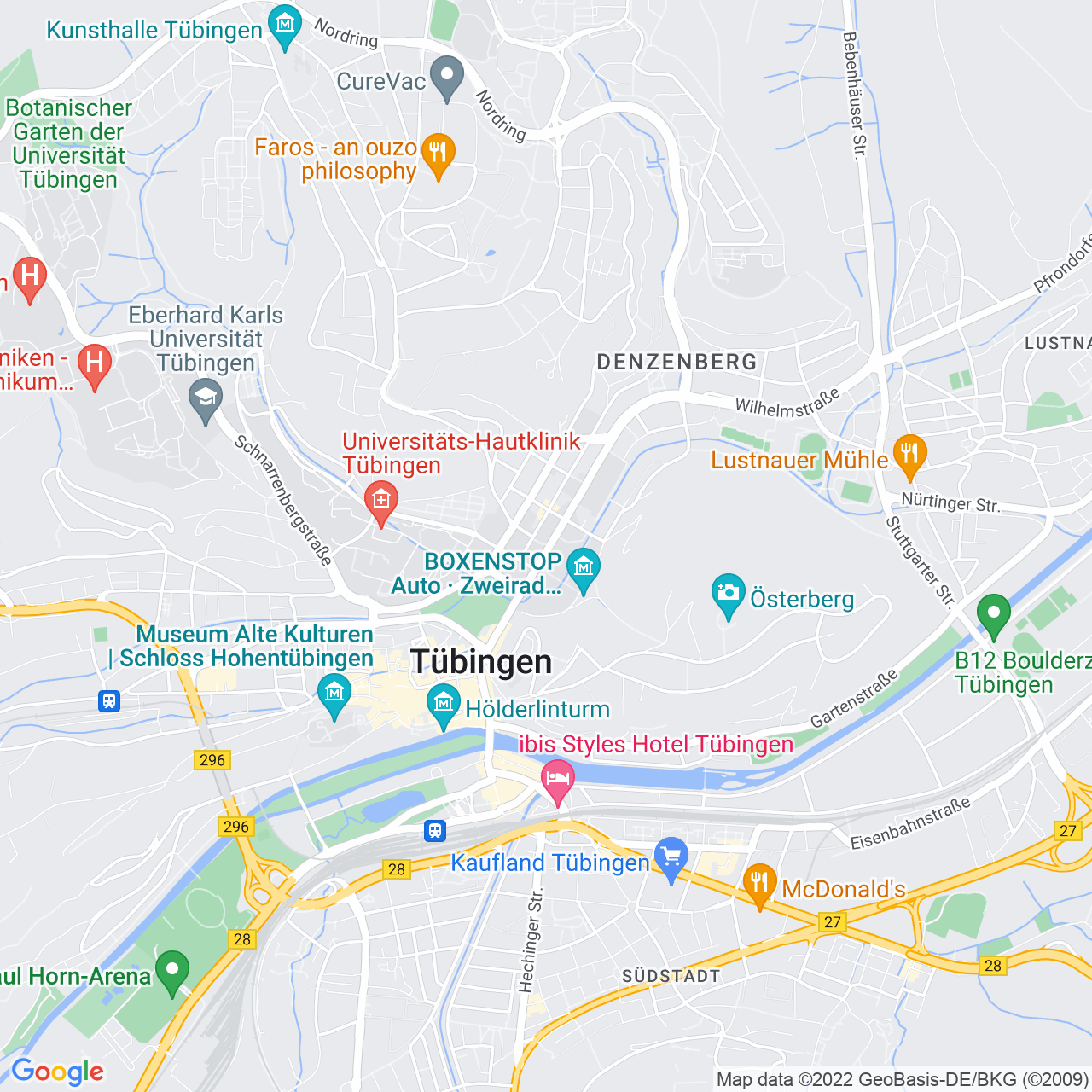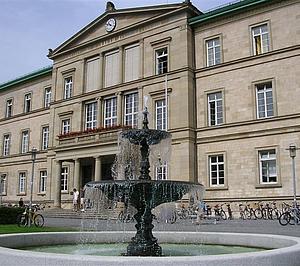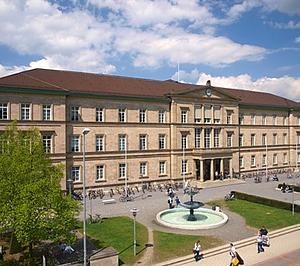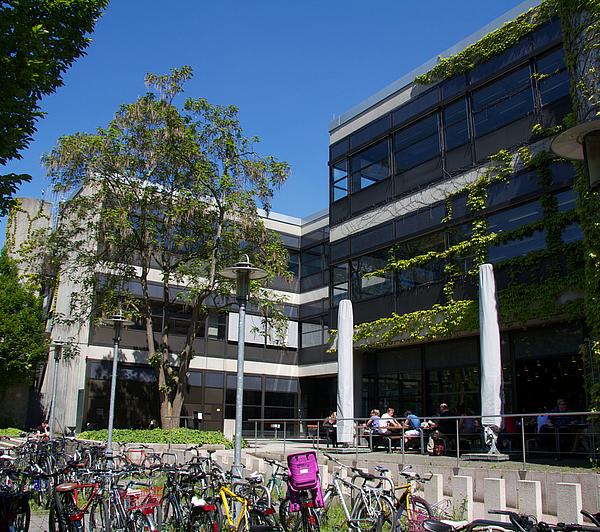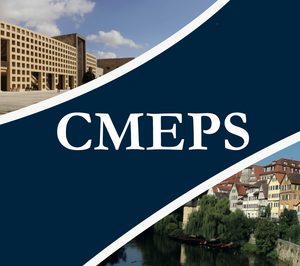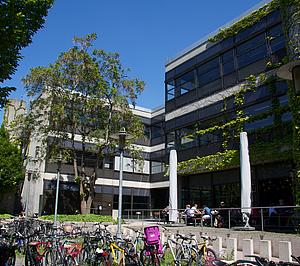Towards a Cross-Cultural Understanding of Politics and Societies: Navigating Middle Eastern Transformations
The M.A. in “Comparative & Middle East Politics and Society” (CMEPS) is a two-year joint master’s program in Political Science offered by the University of Tübingen and the American University in Cairo (AUC). It provides in-depth knowledge of the political and societal developments in the Middle East as well as analytical tools for understanding this region’s complex dynamics and challenges.
The focal point of the degree program is the relationship between societies and states in the MENA region, as well as the dynamics of social and political transformation. Key topics are Comparative Politics of the Middle East, development politics and international cooperation, and issues of regime change and democratization. Students can also choose from a range of elective modules, for example, on International Political Economy or Peace and Conflict Resolution.
To promote the link between theory and practice, occasional study trips to international organizations and/or development agencies as well as to important political institutions are organized. Tübingen students are also required to complete an internship in a study-related field of their choice.
Depending on their first degree, Tübingen students take courses in either Political Science methods or basic Arabic during their first year. Cairo students can also take language or political methods classes according to their own discretion.
Irrespective of their first degree, by the end of their studies, CMEPS students will have a unique profile which combines an advanced knowledge of Comparative Politics with a strong specialization in the politics and societies of the Arab Middle East, including at least working level knowledge of Arabic.
Program structure
Within the program students take classes on “Middle East Politics and Societies”, “Regime Change and Democratization”, “Development Politics”, and “Comparative Politics of the Middle East”, as well as language classes according to their level of proficiency. Students may also choose from a wide range of electives. Students spent the first year of the program at their place of original enrollment (either Tübingen University or AUC). The third term is spent at the respective partner institution to foster corss-cultural skills. It stresses the truly joint nature of the program through a joint international research colloquium with professors from both sides.
The fourth term is reserved for writing a master´s thesis and graduation. All theses are co-supervised by faculty from Tübingen and from AUC. Many students also use this term for an internship.
How is the program structured?
The demand on the international labor market for CMEPS graduates has been consistently high. Almost all graduates have been offered attractive entry positions to the labor market in the fields of their studies and interest, many even before graduation.
Whether in public or private, national or international institutions, organizations, or corporations, from UN and other international organizations to foreign and other national institutions or other government agencies, to NGOs, journalism and international firms: CMEPS students can chose (and do arrive in) the professional careers they prefer. A number of CMEPS graduates also continued in academic work, often with leading universities.
Counseling and Internships
The University’s Career Service provides guidance on career orientation and entry into the professional world. You can find internships and job opportunities in the Practice Portal. We also provide assistance through the more informal network of the CMEPS team and alumni network.
What criteria are applicants selected on?
The CMEPS program offers 20 places each year, 10 each at the University of Tübingen and the AUC. Selection of students is based on a trial of academic track record, personal qualification and experience, and motivation.
What requirements do I need to meet for the program?
You are eligible to study in the CMEPS program if you hold a B.A. degree or equivalent
- in Political Science, International Relations or a related social science, or
- in Middle East Studies, Islamic Studies, or a related discipline.
You also need to provide evidence of your proficiency in English, e.g. by a validTOEFL (scores: at least 90), IELTS (at least 6.5), or by having graduated from an English-language degree program.
The application deadline for the Tübingen cohort is mid-May of each year; studies begin in fall.
The deadline for applications at AUC is in early April (please refer to the respective websites early on).
Which foreign languages do I need to know?
The CMEPS program is taught and assessed in English. Applicants need to provide evidence of their proficiency in English (see admission requirements above).
CMEPS students at Tübingen will also take courses in Arabic in their first year and have the possibility to take further Arabic courses during their semester at AUC. Vice versa, AUC students may take classes in German during the semester in Tübingen.

